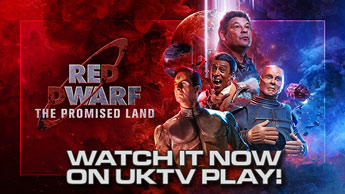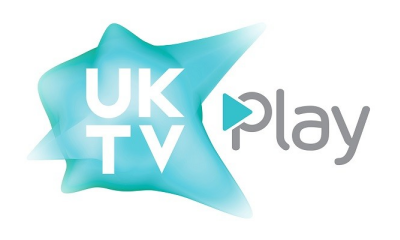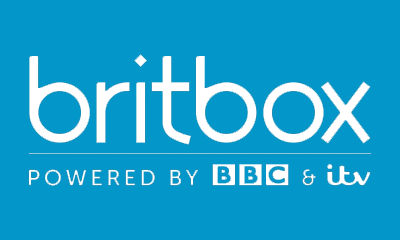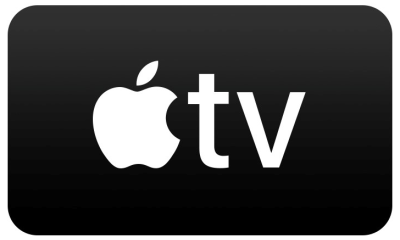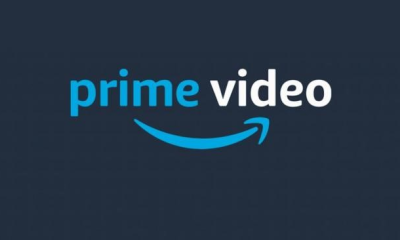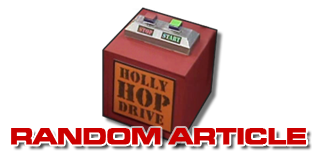 |
View From The Top Mr Flibble bows and scrapes his way through a conversation with Red Dwarf's original producer, and Granada's current Director of Entertainment - Paul Jackson. |

Andrew Ellard
Cowering in awe of such a gargantuan TV name, Mr Flibble was quivering as he whispered his question to Andrew, who dutifully passed it on in a 'this penguin's not with me' way: How did Red Dwarf come to you and get COMMISSIONED?
I had worked with Rob and Doug as sketch writers, particularly on Three of a Kind and Carrott's Lib. They said to me they wanted to write a sitcom and I said "fantastic", because I'd always thought that they were great writers. So I said, "Great I'd love to read it." The first script that I got wasn't Red Dwarf at all, it was Lance Bland News Hound.
It was kind of a Mike Hammer pastiche; a kind of private eye, investigative pastiche. And I read it, and it was funny, but I said to them: "It's just not a genre of comedy that's ever going to have legs as a sitcom. It's a parody, kind of a one-off joke, so write something that has got more legs as a sitcom." And they said, "Oh, right, ok, what about a space comedy?" And I said, "Oh no, no, that's another thing that doesn't have legs as a sitcom. You know, don't be ridiculous."
They said, "No, we really believe in this, we're going to write this." I think they had already written it in fact. I've always believed that, and so within a couple of weeks Red Dwarf arrived. Of course in a sense it isn't really a space comedy, and I think they said to me, "You know it's not, it's The Odd Couple." It's a very classic sitcom structure in a way. It's two people who to a greater or lesser degree are not comfortable with each other, who are locked into a bond that they can't get out of - and what better bond to be locked into than in a tin can 3 million years away from home? In that sense it was a very recognisable structure and I think a very good example of that structure.

Then added onto that, even in that very first episode, it had that imaginative creation of the Cat, and the whole cat people [thing]. I think that, particularly for me, was a precursor to the cleverness, and the width and the breadth that was going to be inherent in the format. So I loved it when I first read it, and said yes I would try and sell it.
What I didn't know at that time was that they'd already had their first script turned down from BBC London. Gareth Gwenlyn had turned it down. Now Gareth is a very respected, very senior producer and, in fact, one-time head of comedy at the BBC. He produced and directed Only Fools and Horses amongst other things, and was a very major figure in the industry. For one reason or another he turned it down - and I didn't know that.
But I had a 'deal' at BBC Manchester - which was rare with the BBC in those days - because I had just previously made a series called Happy Families, which was written by Ben Elton and starred Jennifer Saunders playing five different characters. In those days, not anymore, the way the BBC worked was you got your annual budget pretty much similar to the last years annual budget. So they were reallocating money. Unless you said to whoever the treasurer was that you know it was a one-off, you'd get the same money again. And of course we'd very carefully not done that because we fancied ourselves! (Laughs) And, in fact, there was a half-idea that some of the characters from Happy Families might spin [into] another sitcom. So Happy Families 2 or Ben Elton's Project was written in the BBC finance grid for whatever-year-it-was.
So I took Red Dwarf to a man called Peter Ridsdale Scott, who ran entertainment in BBC Manchester at the time, and he also loved it. So it was great that two of us had really got it, off the paper. The system worked in such a way that it went in just because he said 'here's the slot'. 'Ben Elton Project, right? Here it is!' And that's how it got commissioned.
Despite this being a BBC show, the actual production is done by an independent PRODUCTION COMPANY...
At the time that I did this I was no longer working at the BBC, where I'd first met Rob and Doug and been trained. I was running my own production company by then, which was called PJP - Paul Jackson Productions. So it was 'Paul Jackson Productions for the BBC', that's the way that the BBC always do the credit, and subsequently 'Grant Naylor Productions for the BBC'.
Tell me how things work with these companies involved with the show - Noel Gay, Grant Naylor, PJP, BBC...
We did the first three series under PJP, and then PJP got bought out, effectively, by Noel Gay Television. Just completely coincidentally, they were the agents for Grant Naylor, for Howard Goodall who did the music, and for Chris Barrie, although that was genuinely coincidental. I loved Howard's work, I knew him very well and wanted him to work on it. You know the stories of the casting sessions; Chris was absolutely cast.
Charles Armitage was my agent and my business partner when Noel Gay took over PJP, at that point it was Charles and I who really ran Noel Gay Television. Rob and Doug were still together as Grant Naylor, and they came to me and said, 'Look Paul, it seems a bit daft that we should transfer Red Dwarf into Noel Gay Television - can we buy it off you?' Effectively 'Can we form Grant Naylor?' We did a deal whereby I got a miniscule continuing interest and they took the show over, [and] Grant Naylor now own it and run it all.
The production company credit I'm still very proud of. I get the executive producer credit on the first series and I'm very proud of that. But the company credit was just an anachronism, which was getting in the way, so it's now all very neatly all owned and controlled by Grant Naylor Productions which is quite proper.

At all this business talk, Mr Flibble was developing a headache - not helped by Andrew repeatedly knocking him about the skull, of course. The first episode was notoriously difficult - with several RE-SHOOTS...
There were a lot of re-shoots for that first [episode], we mucked around with it a lot. And it was rehearsed twice, because we rehearsed it then didn't shoot it.
The plan had been to just film scenes again which needed to include Holly, who had been a voiceover at first. But some of the scenes changed didn't have Holly in at all!
Ed, Doug and Rob being the operators that they are, of course, went, "Well, while we're re-shooting we might as well do that one as well..." I, as the producer, wasn't so keen on that - but I was very keen on having Norman in-vision, because it clearly added something.
Tell me what you make of the enlarged SCOPE Red Dwarf now has...
I think [Rob and Doug] envisaged it as pretty much a two-hander, with odd weird things happening. What they realised with Series I, when setting up that history, was that the mess deck - all those people - and the love situation with Kochanski, was very strong material. Plus they realised the possibilities of being sci-fi, of setting it in space. The multi-character stuff, five generations of Lister, and also the timeline stuff, so they can go back. But if they can go back, why not bring it all forward?

Looking back at the first ones, inevitably they're a bit pedestrian compared to what came later. When you look at, for example, the Kennedy episode [Tikka to Ride], or some of the extraordinary complexities of the later episodes, the invention and complexity... those kind of things. [But] I don't think you could have written that first-off, plunged in at that level.
Also it followed a tradition of British sitcoms, where your main characters are losers...
We love the underdog. Brits love the underdog, whereas in America, characters are more often based on successful people. Not always, I mean Frasier is clearly not a total success in his life, but they are more often based on success. They don't like tinted failure in America, so you have to be very careful with that. In Friends they are all frightfully successful - they started off as kids trying to make their way but they very quickly made their way.
American television often seems to offer you a life and friends to aspire to, whereas over here we tend to include people you can identify with, who you know in real life.
I think that's right, yes. American comedy is more 'aspirational'. If you look at the more recent hits like The Office, which I just think is brilliant, you don't want to be David Brent. So we do tend to get our comedy out of people who we don't want to be but know we are or know somebody who is. That's the whole success of The Office, that everybody knows a David Brent.
Mr Flibble couldn't ask his next question as he was too busy calling the Royal Society for the Protection of Birds to report Andrew for penguin abuse. Meanwhile, Andrew asked Paul about directing the episode WHITE HOLE.
[That was] because Ed got sick - I think he had food poisoning. He couldn't stand up, anyway. I was still at Noel Gay at the time. Ed had done all the rehearsal, and on the Friday I got a call: 'Ed's called in sick, the script's all done, could you come and direct it?' "Yes please!"

I got down there and found this bloody complicated planetary billiards shoot! (Laughs) The pre-records had already been done, but for some reason the planet billiards either wasn't finished or hadn't been done at all. So the first thing when I got there, first thing in the morning, was that!
Thank God Ed had [camera] scripted it brilliantly, as he always did. If it had been my script nobody else would have been able to understand it! And of course Doug knew exactly what he wanted, so we got it together. We got it all done on time.
I should think so with the boss in the chair!
By that time I was the guy who signed the cheques, yes. (Laughs) And it had all been worked out by Ed - which is why there was no question of me taking a credit or anything like that. To be honest I just sat there and said, "Roll VT."
With a lot more to tell, part two of this interview will appear next week on reddwarf.co.uk.
At being kept on hold by the RSPB... Mr Flibble is very cross.

